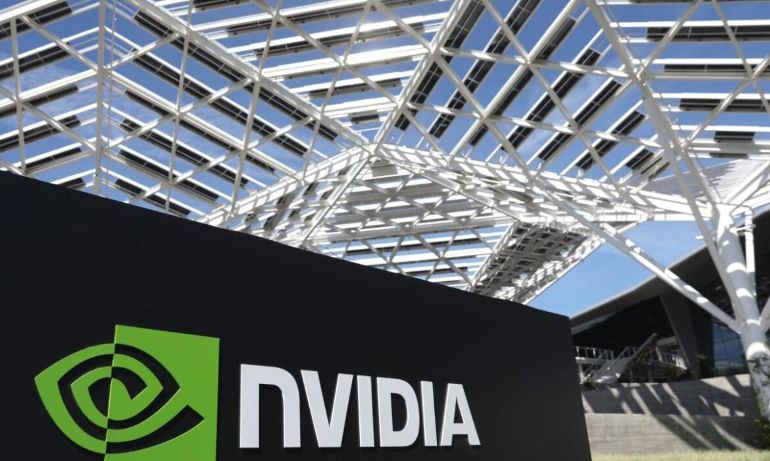Nandini Roy Choudhury, writer
Brief news
- Nvidia is replacing Intel in the Dow Jones Industrial Average on November 8, reflecting the rise of AI and changes in the semiconductor sector.
- Nvidia’s stock has surged over 170% in 2024, driven by high demand for its AI GPUs from major tech companies.
- Intel faces significant challenges, including a 50% stock decline and workforce reductions, as it struggles to compete in the AI market.
Detailed news
The blue-chip index is undergoing a shakeup that reflects the boom in artificial intelligence and a fundamental shift in the semiconductor sector. Nvidia is replacing rival chipmaker Intel in the Dow Jones Industrial Average. This change is a reflection of the rise in artificial intelligence.
In extended trading on Friday, Intel shares experienced a decline of one percent. Nvidia’s shares experienced a 1% increase.
The transition will occur on November 8. Additionally, according to a statement released by S&P Dow Jones, Sherwin Williams will take precedence over Dow Inc. in the index.
In 2024, Nvidia shares have increased by more than 170%, following a nearly 240% increase last year, as investors have raced to acquire a stake in the AI chipmaker. Among publicly traded companies, Nvidia’s market capitalization has increased to $3.3 trillion, second only to Apple.
Nvidia’s graphics processing units (GPUs), including the H100, are being purchased in significant quantities by companies such as Microsoft, Meta, Google, and Amazon to construct computer clusters for their AI research. In each of the previous five quarters, Nvidia’s revenue has increased by over twofold, and in three of them, it has tripled. The company has estimated that the demand for its next-generation AI GPU, Blackwell, is “insane.”
Four of the six trillion-dollar technology companies are now included in the index as a result of Nvidia’s inclusion. Meta and Alphabet are the only two companies that are not included in the Dow.
Intel has experienced a decline in comparison to Nvidia’s growth. Intel, which was previously the leading manufacturer of PC processors, has experienced a decline in market share due to Advanced Micro Devices and has made minimal progress in the field of AI. As a result of manufacturing challenges and increased competition for its central processors, Intel’s shares have declined by more than 50% this year.
Intel disclosed in a recent filing that the audit and finance committee of the board of directors has authorized cost and capital reduction initiatives. These initiatives include a 16,500-employee reduction in the company’s workforce and a reduction in its real estate footprint. The employment reductions were initially disclosed in August.
There are thirty components that make up the Dow, and rather than being weighted by the entire market value, the Dow is weighted by the share price of each individual stock. In May, Nvidia stated that it would be splitting its stock into ten equal shares, which put the business in a stronger position to become a member of the index. The action had no effect on the business’s market capitalization; nonetheless, it resulted in a reduction of the price of each share by ninety percent, which made it possible for the company to join the Dow without having an excessively large weighted.
This is the first time that the index has been altered since February, when Amazon took over from Walgreens Boots Alliance. When it comes to acquiring exposure to the most prominent technological businesses, the Dow has been playing catch-up over the course of several years. A committee from S&P Dow Jones Indices is responsible for selecting the stocks that are included in the index.
Source : CNBC News




